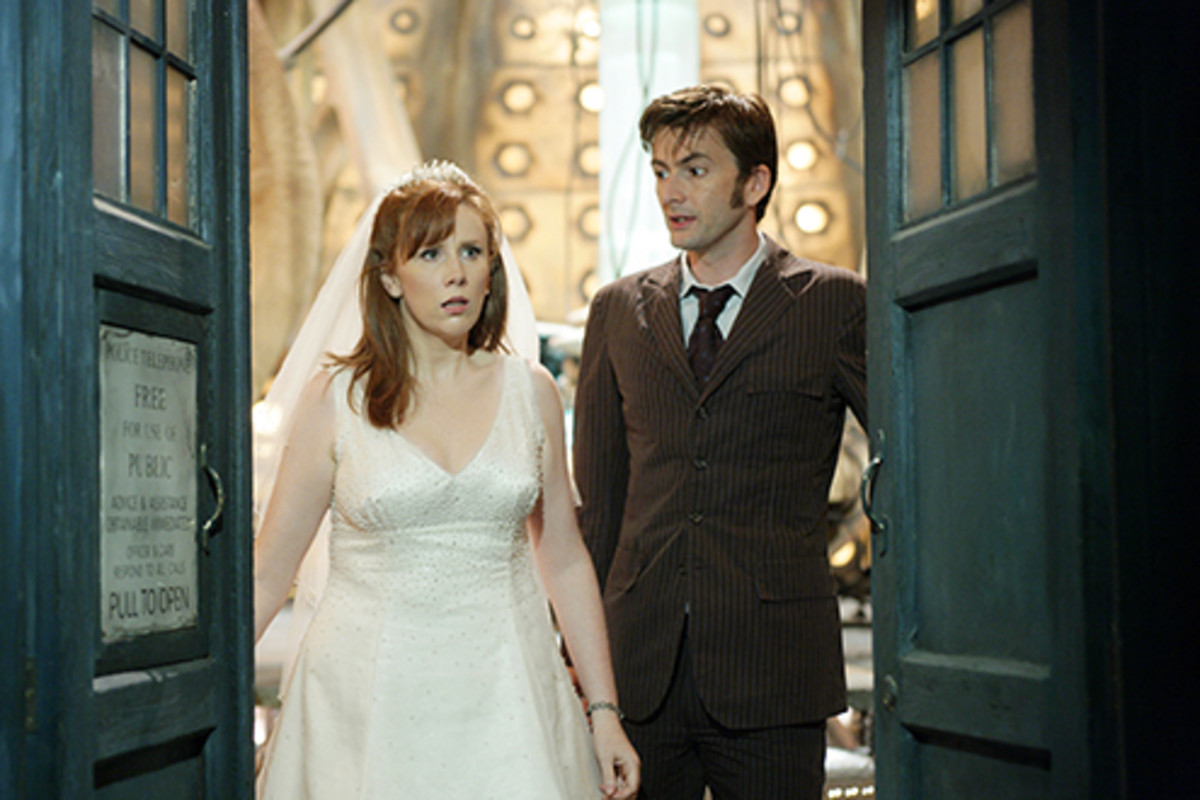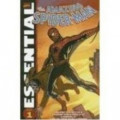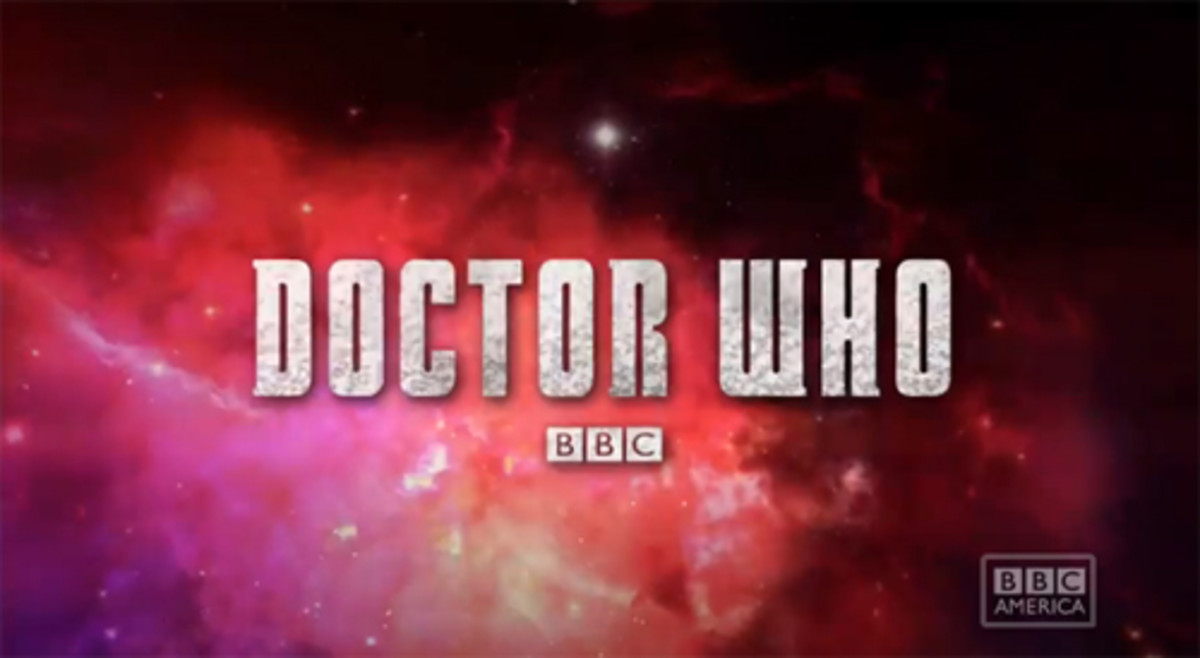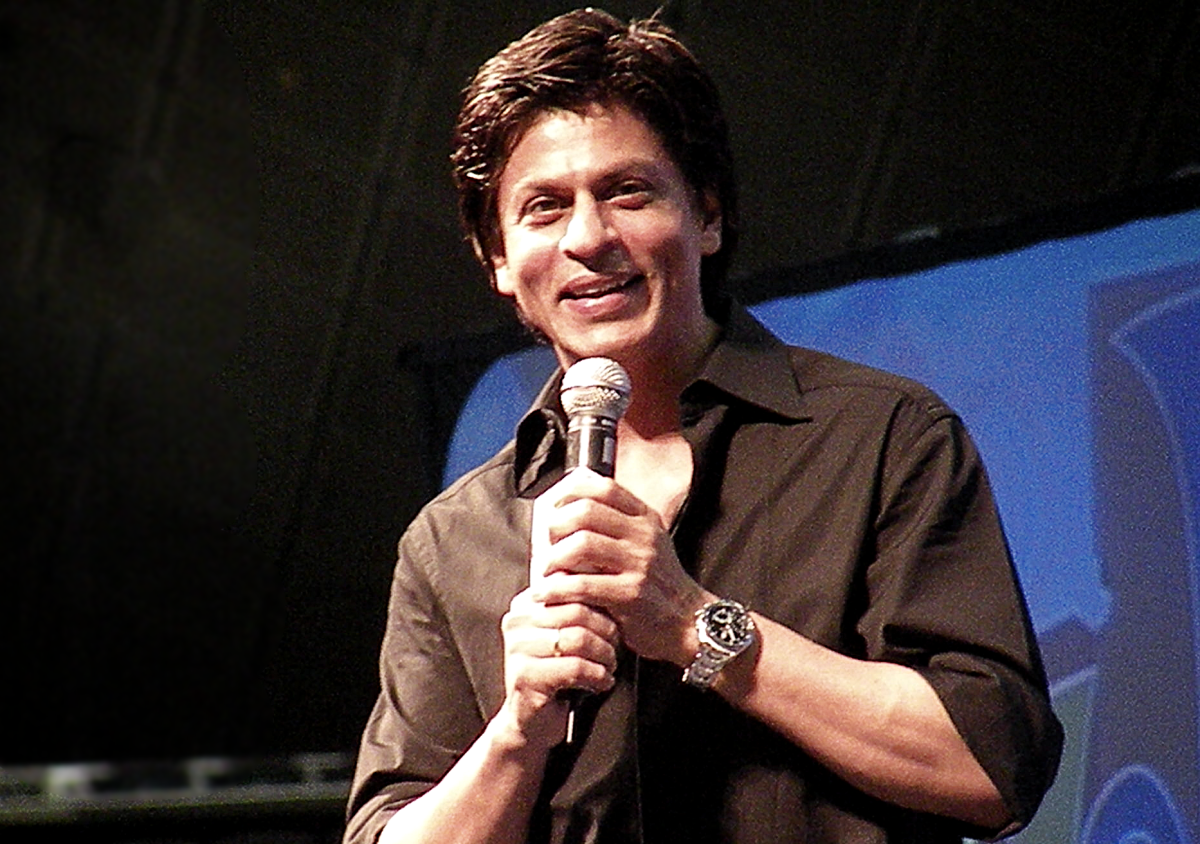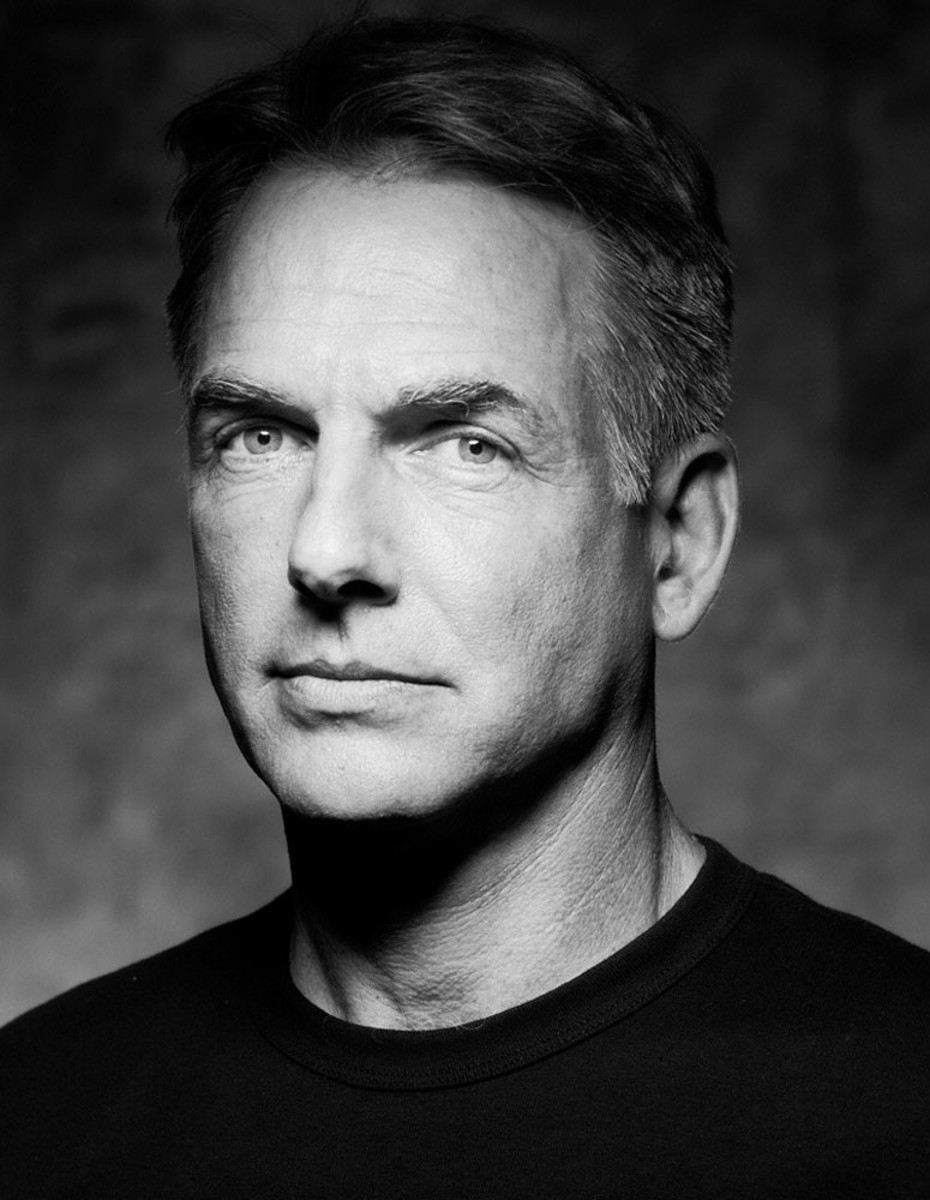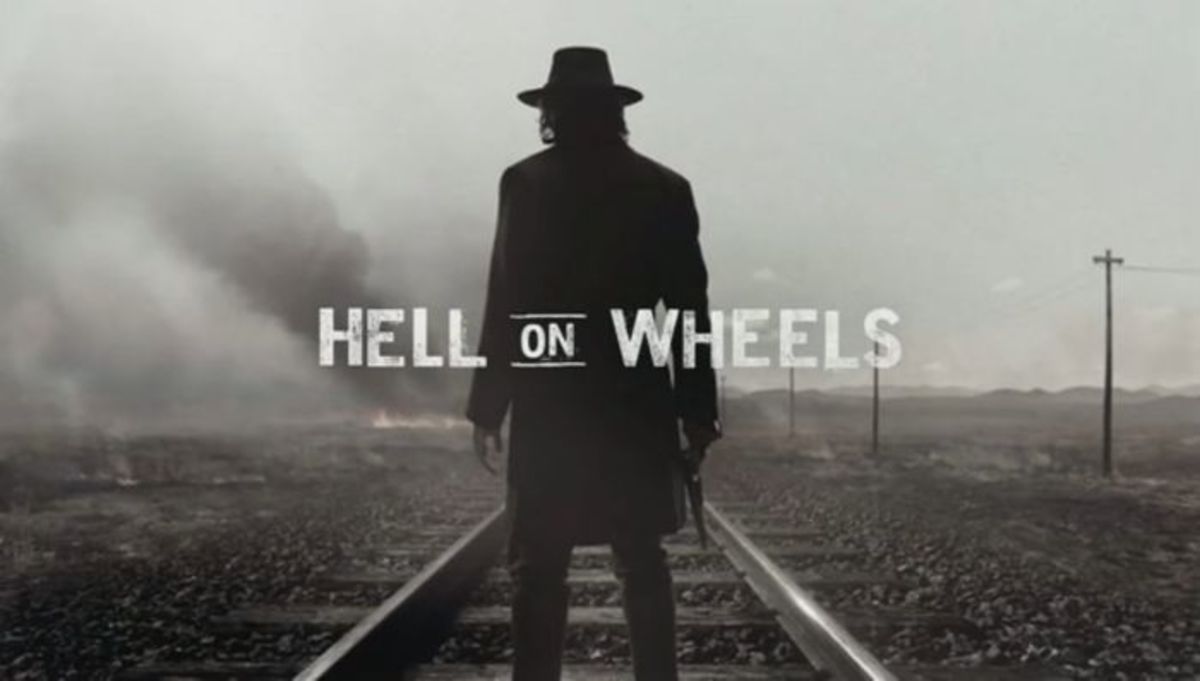Ten Essential Ninth Doctor Moments
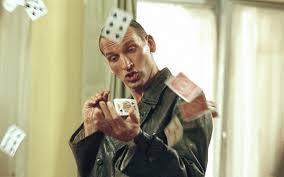
In 2005, BBC's studios audaciously and ambitiously made an attempt to regain some fatefully lost ground, when they elected to determine whether, if through the merits of their own creative ingenious and aspirational reverence, they could permit the property of the science fiction paragon, Doctor Who, to reclaim its highly coveted honour of being the glorious pride of the nation of Britain's greatest conceptual prowess-Enshrine atop the very summit if the epitomising echelons of fictional fascination on a global scale. Over a decade later, it wouldn't be irrational or unreasonable to proclaim that not only has the revived series of "Nu Who" has re-established the identity of the show to its former burgeoning resplendence, but it has expanded on virtually everything it possessed and boasted prior to the new millennium.
There were many dignified beneficiary contributors to the tentative, but confident project, and one of, if not, the most famed of them was the pre-eminent Christopher Ecclestone, who embodied the fantastic Ninth Doctor. Chronologically, he inexplicably ensued the ephemeral, but luxurious Eighth Doctor, who was broadcasted onto screens courtesy of Paul McGann, but the vagueness surrounding the miraculous and unwitnessed transition from that incarnation to his successor was later explained by the introduction of an intermediary and insidiously implemented iteration-Encapsulated by John Hurt to represent the perilous period of the Doctor's life wherein he suffered through the agonising conflict of the Time War.
Retrospectively, the transformative revolution was all but seamless, but when the series re-emerged in the mid-00s, the disappointing departure of the classic predecessor and the subsequent movie, the vagueness pertaining the regeneration, and the pressure of maintaining a deferential fidelity to the original series while simultaneously rejuvenating it reinvigoratingly were just a few of the major hazards threatening to hinder the resurgent return of the Doctor. But, on the visual frontier and while being accompanied by Billie Piper's enticingly relatable Rose Tyler, Ecclestone brought a monumental weight of previously undiscovered gravitas to the character, by way of the purveyances of solemnity juxtaposed by juvenile sass. By virtue of compassionate sympathy, contradictorily complemented by reckless abandonment to ruthlessness. The conniving riddles of Sylvester McCoy and the Seventh Doctor's final serialised television feature interpretation were a far cry away, but the due diligence of dividends were paid.
He is frequently undermined by the underappreciation negligently attributed to him because of the one season brevity of his tenure on the TARDIS, but the Ninth Doctor introduced some essential elements of trauma, severity and eagerness to the character to be explored in an entirely new way through and entirely distinguishable collection of moments. Though, even in such an ephemeral duration of exposure, there are far too many to allocate inclusion to every single one, a catalogue of some of the best are granted their worthy recognition and admiration in the following listicle.
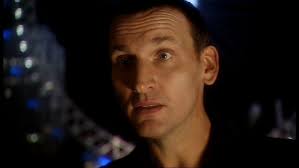
10. "What?"(Rose)
Every incarnation of the Doctor has had their own unique, esoteric and eccentric defining rendition of versatility and consequent mesmeric intrigue. Whether it was the exponential development of the First Doctor from a crotchety old man to a paternal, gentle space grandfather, or the perpetually oscillating cycle of alternations from a jovial, optimally exuberant juvenile to an encumbered, anguished senior that the Eleventh Doctor was the embodying encompassment of. What the most avid proponents of the Ninth Doctor would argue that none compared to with regards to his encapsulation of versatility, however, was the fact that there were several moments throughout his cycle where he was all of the above in complete synchronicity.
He was solemn and morose, yet vibrant and animated. He was distrait and bewildered, yet alert and concentrated. He could even display shades of deception while being pure and loyal. And ambivalent would not be an appropriate word to describe such fluctuations, nor capricious. It was that personally patented brand of off-kilter stability that endeared him to fans, and so, when in one of the inaugural exhibitions that exemplified his comedic presence to the audience, he was centric and focused upon locating the relay dish of the Nestene Consciousness' transmission frequency addressed to all of the synthetic beings in London that transformed them into Autons, while being completely oblivious to the fact that he was standing right in front of the blatantly obvious catalyst for the signal-The London Eye; As Rose grew exasperated attempting to relay that to him:
DOCTOR: How can you hide something that big in a city this small?
ROSE: Hold on. Hide what?
DOCTOR: The transmitter. The Consciousness is controlling every single piece of plastic, so it needs a transmitter to boost the signal.
ROSE: What's it look like?
DOCTOR: Like a transmitter. Round and massive, slap bang in the middle of London. A huge circular metal structure like a dish, like a wheel. Radial. Close to where we're standing. Must be completely invisible. What? What? What? What is it? What?
(After continuous gesturing toward the Eye from Rose)
DOCTOR: Oh. Fantastic!
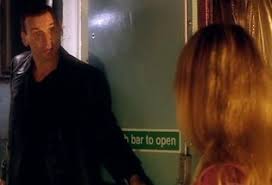
9. "Run For Your Life!"(Rose)
New initiates to the show were curious to witness the mysterious eminence of whatever it was "Doctor Who"'s premise revolved around, when it re-emerged in 2005. But fans of the classic series, in particular, were eagerly awaiting and anticipating the pronounced arrival of this confounded new Doctor-Ready to examine and relish in all of the awe-inspiring, magnificent aspects of his personality. But first, they would be introduced to the equally compelling, but far more mundane life of the nineteen-year-old retail worker, Rose Tyler. An employee at Hendrik's, she was content coasting by through the mediocrity of her life, on minimum wage, living with her mother and in a relationship with a boyfriend who loved her, but didn't know how to fully appreciate her.
That was precisely what was lacking in her life-Appreciation. She was an uncompromising, strong and independent character, with an inquisitive mind, and the deep desire to experience more of the wondrous delights of which she had the right to in life. There was only one man, or one alien, who could oblige such a dream. And when she investigated the suspicious disappearance of her colleague, Wilson, the Doctor finally blundered into her life in a flash. Seemingly aimlessly and indeliberately. But he knew precisely what he was doing, conducting an investigation of his own, and approaching it with diligent purpose and attentive conviction. The Autons had murdered the electrician, and the Doctor made no-nonsense of making that concisely and explicitly clear to her-With a discernable lack of a sympathetic tone.
Much in favour of performing his duties autonomously, he had rigged a bomb to detonate as a precautionary prevention of further death once the shop had been cleared, and introduced himself quite earnestly:
DOCTOR: Who's Wilson?
ROSE: Chief electrician.
DOCTOR: Wilson's dead.
ROSE: That's just not funny. That's sick!
DOCTOR: Hold on. Mind your eyes.
ROSE: I've had enough of this now. Who are you, then? Who's that lot down there? I said, who are they?
DOCTOR: They're made of plastic. Living plastic creatures. They're being controlled by a relay device in the roof, which would be a great big problem if I didn't have this. So, I'm going to go up there and blow them up, and I might well die in the process, but don't worry about me. No, you go home. Go on. Go and have your lovely beans on toast. Don't tell anyone about this, because if you do, you'll get them killed. I'm the Doctor, by the way. What's your name?
ROSE: Rose.
DOCTOR: Nice to meet you, Rose. Run for your life!
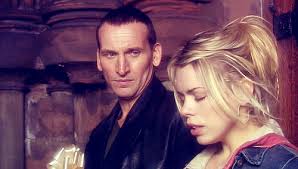
8. Repercussions Of Paradoxical Interference(Father's Day)
It has become a hysterical cliche that the burden of any time traveller is the compulsory responsibility to preserve the "correct" procession of time by resisting the temptation to interfere. Whether it be to optimise personal gain in avarice and gluttony, or the sincere altruism of benevolent intent, those who write about time travel in fiction are wise enough to realise an acknowledge the fact that, were the mystical abilities of traversal through the progression of time available, any sentient entity would possess the urge to alter certain aspects of history and potentially meddle in the affairs of the future. Not only is it an inevitability of human nature, but evidently, the tremendous Time Lord has been susceptible to falling prey to its allure as well.
Deep down though, the Doctor has always been cognisant and competent to, and usually respectful of the virtue in refraining from augmenting the path of history. The First Doctor and the Ninth Doctor especially seem to have been very stubbornly disciplined in this practice. And in the case of the latter, no better opportunity to exercise this philosophy presented itself than when Rose tampered with the event of her father's death. Immediately sympathetic as a sensitive and poignant issue, it put the chemistry of the Doctor and Rose's affections for one another to the test, as he immediately expressed his disdain for what she did in preventing his collision with a car.
The Doctor was also sympathetic to Rose's grief, and attempted to be as compassionate toward her vulnerabilities as possible, but could not refrain from berating her and lecturing her over the duty of responsibility. A counsel of condolence, handled with delicacy, was what his emotional desire would have favoured, deep within his soul, but he had to suppress that in order to make his friend see the error of the fallacy she had committed, when the paradoxical Reapers appeared:
DOCTOR: When we met, I said travel with me in space. You said no. Then I said time machine.
ROSE: It wasn't some big plan. I just saw it happening and I thought, I can stop it.
DOCTOR: I did it again. I picked another stupid ape. I should've known. It's not about showing you the universe. It never is. It's about the universe doing something for you.
ROSE: So it's okay when you go to other times, and you save people's lives, but not when it's me saving my dad.
DOCTOR: I know what I'm doing, you don't. Two sets of us being there made that a vulnerable point.
ROSE: But he's alive!
DOCTOR: My entire planet died. My whole family. Do you think it never occurred to me to go back and save them?
ROSE: But it's not like I've changed history. Not much. I mean he's never going to be a world leader. He's not going to start World War Three or anything.
DOCTOR: Rose, there's a man alive in the world who wasn't alive before. An ordinary man. That's the most important thing in creation. The whole world's different because he's alive.
ROSE: What, would you rather him dead?
DOCTOR: I'm not saying that.
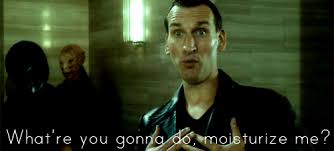
7. Sass(Miscellaneous)
One of the most endearing aspects of the Ninth Doctor's personality for those in most ardent advocacy of him, was his ability to analyse a situation, disassemble it down to its fundamentals, and pontificate about the simplicity of it, as is it was beneath his prestigious esteem-Such was the testament to his inherent wit and eccentric egotism. When confronted with any measure of toil throughout the multitude of beleaguering situations he engaged in a skirmish with, one of the behaviourisms he habitually fell back upon(in resilient contumacy toward the present adversity) was his inherently intriguing and enthralling audacity and swagger of moxie.
For a despondently dejected and depressed victim of the traumatic circumstances in which he reluctantly emerged from, he was miraculously able to inject a potent distillation of animated liveliness into any given scene, and could immediately arrest the attention of all involved within it(along with the audience) in perpetuation of a comedic tone and humourous revivification of the series; Along with the fundamental essential traits of the character's gusto and flair of attitude, that maintained the preservation of the immortality complex of the show(that reflected that of the individual complexion of the Doctor).
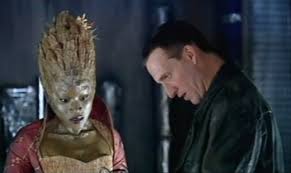
6. Post-War Trauma(The End Of The World)
Particularly for the first four to five years of the modern series' resurgent re-emergence, the predicated revolution of the Doctor's developmental arc consisted of how he struggled unrelentingly with the moral consequences of his contributions to the tragic horrors of the Time War. It featured prominently whenever referenced beyond that, as well, as the aftermath of such a conflict of travesties would impact anyone most significantly. All of his subsequently ensuing meanderings were really a conscious endeavour of his own constructed coping mechanisms, founded upon the desire to abscond the self-inflicted judgement and accountability of inescapable guilt he desperately yearned for emancipation from.
The eventual realisation that, no matter the magnitude of the purported philosophy of benevolence he prided his relevance in the universe upon, there was no way to avoid the inadvertent incendiary repercussions of the imposed opposition to his ideological integrity was almost as traumatising as the events that impelled that devastating clarity themselves. He was entangled in a web of self-torment, clinging onto any last vestige of resemblant hope and salvation he could. And it was displayed most affectingly when, while in conversation with Jabe, an honoured dignitary of the Forrest Of Cheem, he divulged all of the implicated devastation(that was later elaborated upon) with no more than the nuance of the expression of melancholy agony emblazoned across his tearful face:
DOCTOR: So tell me, Jabe, what's a tree like you doing in a place like this?
JABE: Respect for the Earth.
DOCTOR: Oh, come on. Everyone on this platform's worth zillions.
JABE: Well, perhaps it's a case of having to be seen at the right occasions.
DOCTOR: In case your share prices drop? I know you lot. You've got massive forests everywhere, roots everywhere, and there's always money in land.
JABE: All the same, we respect the Earth as family. So many species evolved from that planet. Mankind is only one. I'm another. My ancestors were transplanted from the planet down below, and I'm a direct descendant of the tropical rainforest.
DOCTOR: Excuse me.
JABE: And what about your ancestry, Doctor? Perhaps you could tell a story or two. Perhaps a man only enjoys trouble when there's nothing else left. I scanned you earlier. The metal machine had trouble identifying your species. It refused to admit your existence. And even when it named you, I wouldn't believe it. But it was right. I know where you're from. Forgive me for intruding, but it's remarkable that you even exist. I just wanted to say how sorry I am.
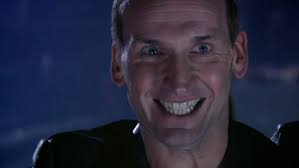
5. "Everybody Lives"(The Doctor Dances)
The antithesis to his atrociously afflicted remorse was the gratified glory of joy and elation he began to experience as his adventures with Rose and the subsequent victories they relished in began to frequent their travels at an increasing rate. He became comforted and reassured of the saliently munificent impact he could generously grant the various realms around him once again, and his ferocious aversion to becoming too immersed and invested in situations and with individuals he determined it an imperative resistance was gradually quelled.
He and Rose inexplicably found themselves in London amidst the perturbing chaos of the blitz, and besieged by a mysterious and ominously ubiquitous peril of a small child in a gas mask that exhibited symptoms similar to that of a zombie-Repetitive and resilient pursuit of the beleaguered citizens fleeing from its proximity for fear of coming into contact and being transformed into a mindless minion themselves, and losing their souls. The recurrence of the naive obliviousness to what the juvenile was exacting, as they desired nothing other than their Mummy was a quandary that put an incredible strain of the pressure of resolving the assailing threat upon the Doctor's burdened shoulders, but the conclusion to the disastrous terror saw the liberation of all of the victims from the confinement of the mire of unconscious wandering through the most innocuous means of therapeutic treatment-Nanogenes.
The Doctor was permitted the honour of administering the treatment to an entire legion of roaming patients, and the incredible pinnacle of ecstasy and elation he felt and cherished above all else when he was finally able to reach that success was unlike anything he had felt in an agonising endurance of time:
ROSE: What are you doing?
DOCTOR: Software patch. Going to email the upgrade. You want moves, Rose? I'll give you moves. Everybody lives, Rose. Just this once, everybody lives! Doctor Constantine. Who never left his patients. Back on your feet, constant doctor. The world doesn't want to get by without you just yet, and I don't blame it one bit. These are your patients. All better now.
An unapologetic glee.
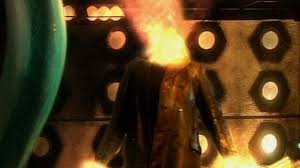
4. Regeneration(The Parting Of Ways)
The tragedy of the Ninth Doctor would return to haunt Whovians once again, however, when his mortal fate announced itself through a deed not unfamiliar to him-And one that had elicited that same eventuation in the conclusion of his cycle many times before; Sacrifice. He and Rose had returned to Satellite 5 a century after their previous visitation to the space station situated within Earth's stratosphere, to find it in a state of corrupt ruination. A labyrinth of torturous interpretations of the "classic" gameshows Big Brother, Extreme Makeover, The Weakest Link and others had been constructed with lethal consequences for the arbitrarily selected participants, for the depraved "entertainment" of those unwittingly biding their time before their own subjection.
This was soon revealed to be the sinister sum of the Dalek fleet's menacing machinations, to the astonished anguish of the Doctor, who has presumed them extinct. Unwillingly propelled into one of the most perilous situations he had ever been confronted with, with the preservation of the lives of the countless lives aboard the satellite and the billions on the planet below as the stakes, he had to resort to the dismissal of Rose from the proximity of the impending explosion of hellfire as a precautionary prevention of her potential death. She returned however, having absorbed the power of the Time Vortex from the heart of the TARDIS, and used it to disintegrate the molecular constructions of the entire fleet, removing them from time.
Satisfied relief would have ensued at the relinquishment of the threat, if not for the fact that a carbon-based lifeform could not cope with the strain of the pure potency of the vortex, and so Rose was condemned to death. But the Doctor, once again, intervened by alleviating the peril through the transferring assimilation of the vortex himself by kissing her-Exclaiming "It sounds like you need a Doctor". She then fainted and collapsed into his arms, only to awake in the TARDIS control room, with everything tranquil and safe. Though in a state of inevitable death, the Doctor embraced the full extent of his capacity of strength, and reassured her, with another profoundly poignant and affecting oratorical serenade:
ROSE: What happened?
DOCTOR: Don't you remember?
ROSE: It's like there was this singing.
DOCTOR: That's right. I sang a song and the Daleks ran away.
ROSE: I was at home. No, I wasn't, I was in the Tardis, and there was this light. I can't remember anything else.
DOCTOR: Rose Tyler. I was going take you to so many places. Barcelona. Not the city Barcelona, the planet Barcelona. You'd love it. Fantastic place. They've got dogs with no noses. Imagine how many times a day you end up telling that joke, and it's still funny.
ROSE: Then, why can't we go?
DOCTOR: Maybe you will, and maybe I will. But not like this.
ROSE: You're not making sense.
DOCTOR: I might never make sense again. I might have two heads, or no head. Imagine me with no head. And don't say that's an improvement. But it's a bit dodgy, this process. You never know what you're going to end up with
ROSE: Doctor!
DOCTOR: Stay away!
ROSE: Doctor, tell me what's going on.
DOCTOR: I absorbed all the energy of the Time Vortex, and no one's meant to do that. Every cell in my body's dying.
ROSE: Can't you do something?
DOCTOR: Yeah, I'm doing it now. Time Lords have this little trick, it's sort of a way of cheating death. Except it means I'm going to change, and I'm not going to see you again. Not like this. Not with this daft old face. And before I go
ROSE: Don't say that.
DOCTOR: Rose, before I go, I just want to tell you, you were fantastic. Absolutely fantastic. And do you know what? So was I.
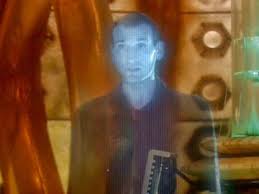
3. Emergency Protocol One(The Parting Of Ways)
Only moments before the climactic conclusion to the averting of the Dalek's tyranny and the subsequent solemnity at the abrupt departure of one of the most beloved alums to grace the sci-fi paragon with their presence, the Ninth Doctor determined that the only advisable and moral decisive course of action to take, in adherence to his obligatory oath to protect Rose from any harm and maintain his duty of care, was to cast her away in the TARDIS-Sending her back home hundreds of thousands of years before the exacting of the Daleks' vengeful assault upon Satellite 5 by activating Emergency Protocol One.
The consequences of the protocol's procedural commencement mandated the dormant rendering of the vessel's navigation circuits upon its arrival on Earth in the 21st century, and this was explained to Rose in the pre-recorded holographic projection addressed to her, imploring her to forget about the machine and live her life to its optimum realisation of adequate satisfaction. The pre-conceptual precautionary foresight he had in recording a contingent message hinging on the occurrence of circumstances beleaguering enough to provide the impetus for the decision was admirable, and the affectionate appreciation he conveyed to her only added to the compelling emotional gravitas as he made a compassionately protective deception of her faith in him to coerce her into the TARDIS to dismiss her:
DOCTOR: This is Emergency Programme One. Rose, now listen, this is important. If this message is activated, then it can only mean one thing. We must be in danger. And I mean fatal. I'm dead or about to die any second with no chance of escape.
ROSE: No!
DOCTOR: And that's okay. Hope it's a good death. But I promised to look after you, and that's what I'm doing. The Tardis is taking you home.
ROSE: I won't let you.
DOCTOR: And I bet you're fussing and moaning now. Typical. But hold on and just listen a bit more. The Tardis can never return for me. Emergency Programme One means I'm facing an enemy that should never get their hands on this machine. So this is what you should do. Let the Tardis die. Just let this old box gather dust. No one can open it. No one'll even notice it. Let it become a strange little thing standing on a street corner. And over the years, the world'll move on and the box will be buried. And if you want to remember me, then you can do one thing. That's all, one thing. Have a good life. Do that for me, Rose. Have a fantastic life.
ROSE: You can't do this to me. You can't. Take me back! Take me back! No!
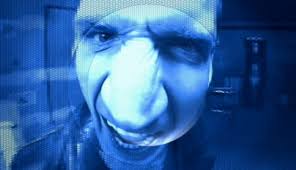
2. "I Made It Happen!"(Dalek)
Shock, devastation, desperation, fury, hatred, and then remorse. That was the expeditiously propulsive rollercoaster of emotions that the Doctor underwent upon the discovery of the only other vestigial survivor of the horrific events of the Time War. A single Dalek was sufficient in impelling an influx of histrionic rage and unmitigated emotion of fury and the impulse to exact retributive violence on the creature of malignancy encased in a synthetic shell of invulnerability that stood before him. His initial feelings of sympathy and the intention to rescue the unidentified specimen from the confines of a cell deep within the lower levels of the museum of Henry Van Staten's curation in Utah soon lead to the perplexed astonishment at the harrowing revelation, and entailed the urgency to escape the mutual incarceration for fear of being exterminated.
The realisation of the defective canon lead to amused delight, and the drastic transition to a malevolent desire to inflict physical damage on the previously muted and dormant machine with the methods of electrocution that were capitalised upon in attempts to force its speech:
DOCTOR: Look, I'm sorry about this. Mister Van Statten might think he's clever, but never mind him. I've come to help. I'm the Doctor.
METALTRON: Doc Tor?
DOCTOR: Impossible.
METALTRON: The Doctor?
DALEK: Exterminate! Exterminate!
DOCTOR: Let me out!
DALEK: Exterminate! You are an enemy of the Daleks! You must be destroyed!
DOCTOR: It's not working. Fantastic! Oh, fantastic! Powerless! Look at you. The great space dustbin. How does it feel?
DALEK: Keep back!
DOCTOR: What for? What're you going to do to me? If you can't kill, then what are you good for, Dalek? What's the point of you? You're nothing. What the hell are you here for?
DALEK: I am waiting for orders.
DOCTOR: What does that mean?
DALEK: I am a soldier. I was bred to receive orders.
DOCTOR: Well you're never going to get any. Not ever.
DALEK: I demand orders!
DOCTOR: They're never going to come! Your race is dead! You all burnt, all of you. Ten million ships on fire. The entire Dalek race wiped out in one second.
DALEK: You lie!
DOCTOR: I watched it happen. I made it happen.
DALEK: You destroyed us?
DOCTOR: I had no choice.
DALEK: And what of the Time Lords?
DOCTOR: Dead. They burnt with you. The end of the last great Time War. Everyone lost.
DALEK: And the coward survived.
DOCTOR: Oh, and I caught your little signal. Help me. Poor little thing. But there's no one else coming 'cause there's no one else left.
DALEK: I am alone in the universe.
DOCTOR: Yep.
DALEK: So are you. We are the same.
DOCTOR: We're not the same! I'm not- No, wait. Maybe we are. You're right. Yeah, okay. You've got a point. 'Cause I know what to do. I know what should happen. I know what you deserve. Exterminate. DALEK: Have pity!
DOCTOR: Why should I? You never did.
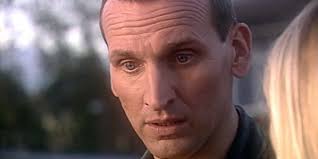
1. "I Can Feel It"(Rose)
The quandary that the production team of the revived series were faced with was the mystery of devising an efficient method of identifying, defining and making the modern incarnation of the character endearing to the uninitiated prospective audience, and the loyally anticipating fans of the classic series. There was an inherent atmosphere suffusing the zeitgeist of the show, and they were very cognizant of the desire not to defile the revered recognition and adulation that the previous iteration of the property had garnered by besmirching the adored reputation inadvertently.
The most effective and impactful way of achieving such a momentously accomplished accolade? A very aware, very overt soliloquy outlining what precisely the identified realisation of character's explication should have been. The magnitude of the eminent gravitas of the Doctor's universal significance was emphatically expanded through a meteoric ascension to the epitome of the arrestingly monumental assimilation between him and the universe-Conveyed sufficiently through yet another dramatic oration exemplifying the perennial majesty of the show and its lead was and is:
ROSE: But what's it all for? I mean, shop window dummies, what's that about? Is someone trying to take over Britain's shops?
DOCTOR: No.
ROSE: No.
DOCTOR: It's not a price war. They want to overthrow the human race and destroy you. Do you believe me?
ROSE: No.
DOCTOR: But you're still listening.
ROSE: Really, though, Doctor. Tell me, who are you?
DOCTOR: Do you know like we were saying about the Earth revolving? It's like when you were a kid. The first time they tell you the world's turning and you just can't quite believe it because everything looks like it's standing still. I can feel it. The turn of the Earth. The ground beneath our feet is spinning at a thousand miles an hour, and the entire planet is hurtling round the sun at sixty seven thousand miles an hour, and I can feel it. We're falling through space, you and me, clinging to the skin of this tiny little world, and if we let go. That's who I am. Now, forget me, Rose Tyler. Go home.
And with that, he swaggered off back into the haze of his mystique, but afterwards, there contradictorily was no ambiguity over the interpretation of the character.

